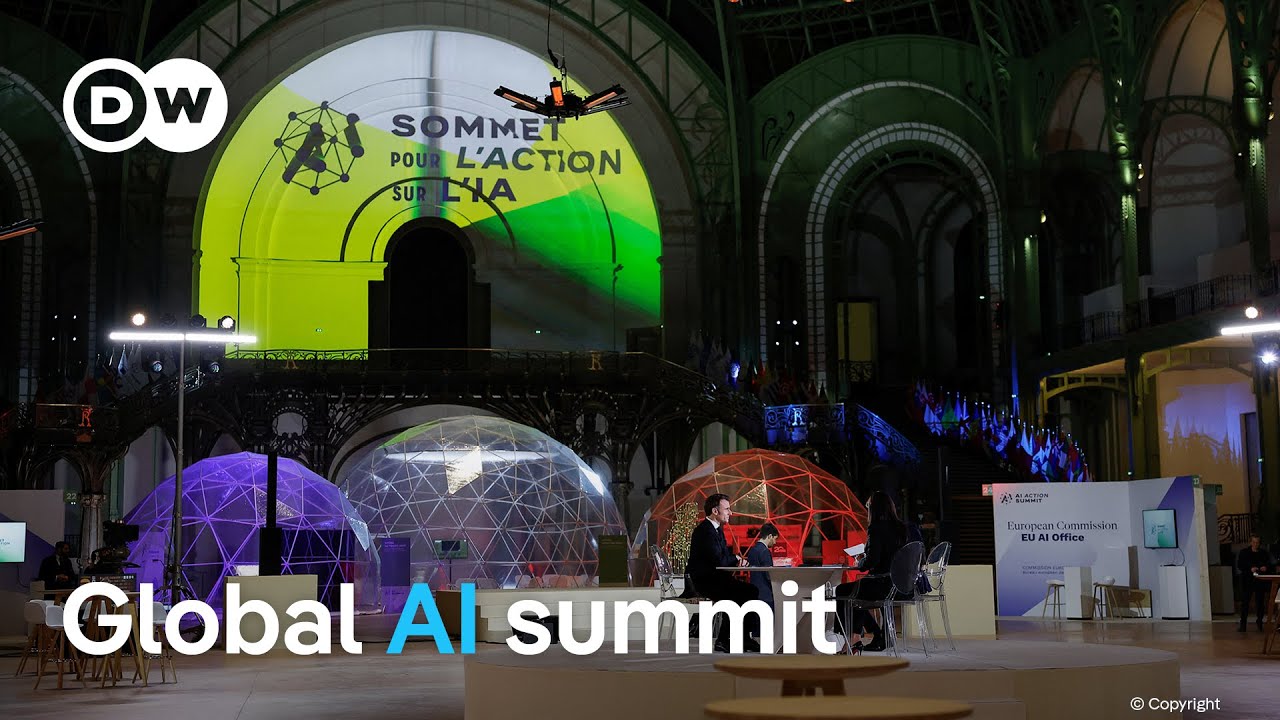The global AI summit in Paris, co-hosted by French President Emmanuel Macron and Indian Prime Minister Narendra Modi, focuses on balancing the regulation and innovation of AI technology, with Macron pledging over 100 billion euros to the sector. The discussions emphasize the importance of existing regulations like the EU’s AI Act while addressing concerns about fostering independent European innovation and ensuring that AI can effectively tackle societal challenges.
The global artificial intelligence summit in Paris, co-hosted by French President Emmanuel Macron and Indian Prime Minister Narendra Modi, aims to address the growth and regulation of AI technology. Macron has pledged over 100 billion euros to the AI sector, highlighting the urgency of the topic, especially in light of recent developments in China that have disrupted the industry. The summit is seen as a pivotal moment for discussing both the opportunities and challenges posed by AI, with Macron even using deepfake videos of himself to illustrate the technology’s potential for misinformation.
During the summit, there is a notable shift in focus from regulation to harnessing AI’s opportunities. Macron emphasized the need for a balanced approach, acknowledging that while regulation is essential, it should not stifle innovation. The summit aims to foster discussions on how AI can address societal challenges while ensuring that regulations are effectively implemented. This reflects a broader trend from previous AI summits, which have primarily concentrated on the risks associated with the technology.
Experts at the summit argue that regulation and innovation are not mutually exclusive. They stress the importance of existing regulations in the EU, such as the AI Act, which aims to create a risk-based framework for AI deployment. This regulation prohibits harmful practices like social scoring and manipulation while promoting transparency, which is crucial for building trust in AI technologies. The conversation highlights the need for companies to understand the safety and robustness of AI models they are adopting.
Critics of the AI Act argue that it may stifle innovation, but proponents believe that a nuanced understanding of the regulations is necessary. They point out that the AI Act is still evolving and requires adjustments to provide legal clarity. The implementation of oversight bodies is also suggested to help companies navigate the regulatory landscape, ensuring that AI can be safely integrated into sectors like healthcare and education, where it can provide significant societal benefits.
Macron’s substantial investment in AI is seen as a step towards reducing Europe’s dependency on US and Chinese tech giants. However, experts caution that the effectiveness of this investment will depend on how it is allocated. There is concern that funds may end up benefiting large tech companies rather than fostering independent European innovation. The summit serves as a platform for discussing these critical issues, aiming to strike a balance between leveraging AI’s potential and ensuring responsible governance.
